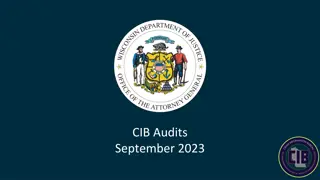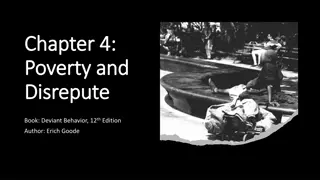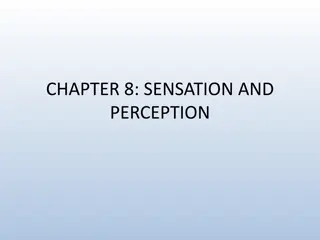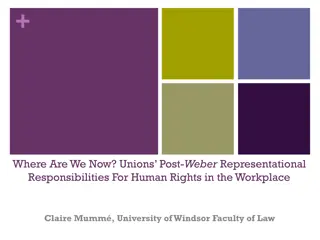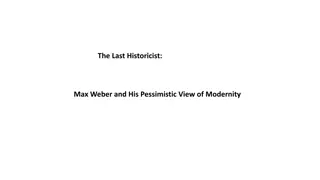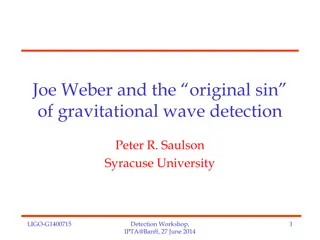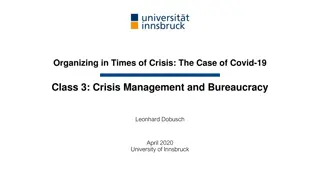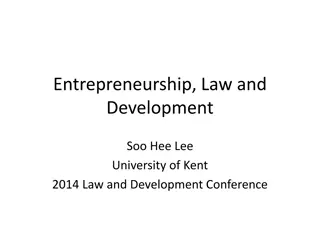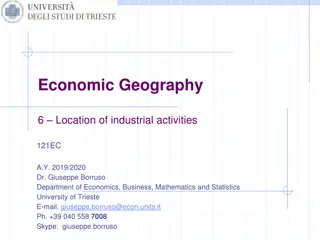Team Overview of Wisconsin Department of Justice Personnel
Meet the dedicated team members at the Wisconsin Department of Justice, including Craig Thering, Ben Brandner, Sarah Cook, Zach Polachek, Jeanette Devereaux-Weber, Jennifer Virgin, and Megan Smaby. Learn about their roles, backgrounds, and contributions to various units within the department.
1 views • 36 slides
MRES Transmission Project Updates and Regulatory Overview
John Weber, Senior Transmission Engineer, presents key updates on MRES transmission projects, including the energization of the Lorain Substation and recent restoration efforts post-tornado strike at Elbow Lake Substation. The meeting agenda covers MRES member rate information, regulatory changes, a
1 views • 15 slides
Understanding Bureaucracy: Origins, Functions, and Myths
Explore the concept of bureaucracy, tracing its origins and elements according to Max Weber's analysis. Discover the evolution from patronage to the merit-based system and debunk common bureaucratic myths prevalent in society. Gain insights into the role of civil servants and the intricate workings
4 views • 54 slides
Understanding Power and Authority: Exploring Legitimacy Through Works of Lukes and Weber
Diving into the concepts of power and authority, this discussion focuses on the crucial role of legitimacy in distinguishing between the two. Drawing insights from the works of Lukes and Weber, the discourse delves into the dimensions of decision-making, non-decision-making, and shaping desires to i
0 views • 28 slides
Understanding Poverty and Deviance: Stigma and Perspectives
Poverty is not just a lack of material resources but also a social stigma, often associated with immorality and failure. The relationship between poverty and deviance is complex, with societal perceptions shaping the experiences of those in poverty. From blaming the poor for their situation to socie
1 views • 16 slides
Elements of Social Action: Understanding Human Behavior in Society
Social action plays a vital role in analyzing human behavior within a society. Max Weber's concept emphasizes how actions influence and are influenced by others, holding subjective meanings. Talcott Parsons outlined five components: actor, objective, social situation, normative orientation, and ener
0 views • 9 slides
Understanding Sensation and Perception in Psychology
Sensation and perception play crucial roles in how we interpret the world around us. Sensation is the process by which stimuli trigger our sensory receptors, while perception involves organizing and interpreting sensory information. This chapter delves into thresholds, sensory differences, Weber's L
0 views • 52 slides
Understanding Types of Social Action According to Max Weber
Max Weber's sociology delves into the consequences of different types of social action, exploring how these actions can conflict and create tensions in society. Weber's typology categorizes social action into rational-purposeful, value-rational, affective, and traditional actions, highlighting the c
1 views • 10 slides
Innovative Methods for Banking System Change Management at National Level
Changing the banking sector of a country requires innovative methods such as grafting novel processes, pruning old inefficient ones, harmonizing the organization, and empowering staff through apprenticeship and knowledge management. Historical changes in management evolved from Weber's Bureaucracy t
0 views • 31 slides
Secure and Trustworthy Cyberspace (SaTC) Program Overview
The Secure and Trustworthy Cyberspace (SaTC) Program, led by Program Director Sam Weber, aims to protect cyber systems from malicious behavior while upholding privacy and usability. It focuses on multidisciplinary approaches involving various disciplines like computer science, engineering, economics
0 views • 9 slides
Unions Post-Weber: Representational Responsibilities For Human Rights
This presentation by Claire Mumm from the University of Windsor Faculty of Law discusses the impact of expanded jurisdiction over human rights issues post-Weber on unions' representational responsibilities for their members. It delves into the changes in DFR case law, claims against unions at Human
0 views • 37 slides
Ankle Fracture in a Patient with Cerebral Palsy: Diagnostic Radiology Case Study
A 57-year-old male with a history of cerebral palsy presented with ankle pain following a ground level fall. Examination revealed a Danis-Weber type B3 fracture subluxation and a displaced age-indeterminant fracture of the talar neck with midfoot collapse. Key imaging findings included soft tissue s
0 views • 15 slides
Growth of South Asian Canadian Population in Canada
The population of South Asian Canadians in Canada is increasing rapidly, outpacing the overall population growth. Predominantly first-generation immigrants, they are concentrated in Ontario and British Columbia. This demographic tends to have a higher proportion of children and young adults and is s
0 views • 32 slides
Understanding Historicist Views: Max Weber's Perspective
Max Weber, a prominent sociologist, explored the historicist perspective by emphasizing the impact of history on all aspects of human culture and values. His critical approach highlighted the fluid nature of societal elements and the need to understand them within their historical context. Additiona
0 views • 16 slides
Understanding and Checking Mathematical Proofs
Reading and understanding mathematical proofs involves careful analysis of logic and reasoning. Mathematicians and students use various strategies to ensure correctness, such as examining assumptions, following step-by-step logic, and verifying conclusions. This process is crucial for grasping the v
1 views • 79 slides
The Legacy of Joe Weber in Gravitational Wave Detection
Joe Weber, a key figure in the history of gravitational wave detection, made significant original contributions to the field, despite facing conflicts and challenges. His groundbreaking work laid the foundation for future advancements in the detection of gravitational waves. The story of Joe Weber's
1 views • 19 slides
Transmission Engineer Meeting Summary - August 23, 2024
John Weber, Senior Transmission Engineer, led a meeting discussing MRES true-up for 2023 historical rate information, regulatory changes, and transmission projects. The meeting covered MRES member rate information and highlighted MRES transmission facilities, FERC background, and recent projects inc
0 views • 15 slides
Understanding Bureaucracy in Times of Crisis: Lessons from Covid-19
Exploring the role of bureaucracy in crisis management, this study delves into Max Weber's perspective on the precision and stability it offers. It discusses the concept of Weberian Bureaucracy as a modern form of organization, emphasizing hierarchy, specialization, and centralized control. Addition
0 views • 15 slides
Understanding Max Weber's Bureaucracy Theory
Max Weber, a renowned sociologist and political economist, developed the Theory of Bureaucracy in the early 20th century to address the challenges of industrial revolution in Germany. His principles emphasized efficiency and effectiveness in organizational administration. Despite some misconceptions
0 views • 23 slides
Understanding Entrepreneurship, Law, and Development in Developing Countries
This text explores how the legal system of a developing country influences entrepreneurial opportunities within the neoliberal context. It discusses the impact of legal rationality, modern law, and intellectual mobilization on the entrepreneurial landscape, with a focus on China. The roles of Max We
0 views • 11 slides
Transmission Engineer Meeting Agenda for MRES, MMU, and WMU - October 27, 2023
John Weber, Senior Transmission Engineer, leads a meeting discussing regulatory changes, specific rate information for MRES, MMU, and WMU in 2024, true-up details on attachments, and incorporation of 2024 FLTYs into rates effective January 1, 2024. The meeting also covers the background of MRES, FER
0 views • 14 slides
Understanding Politics, Power, and Authority: Basics of Sociology
Politics encompasses the use of power to influence government activities, extending beyond to organizations and social movements. Power, as defined by Max Weber, refers to the realization of one's will despite resistance. Authority signifies accepted power that people agree to follow, often linked w
0 views • 22 slides
Understanding Weber's Model of Industrial Location Theory
Weber's model of industrial location theory, developed by Alfred Weber in 1909, focuses on minimizing transportation costs for firms by strategically locating their facilities relative to input suppliers and markets. The theory considers factors such as production costs, transportation costs, and re
0 views • 18 slides
